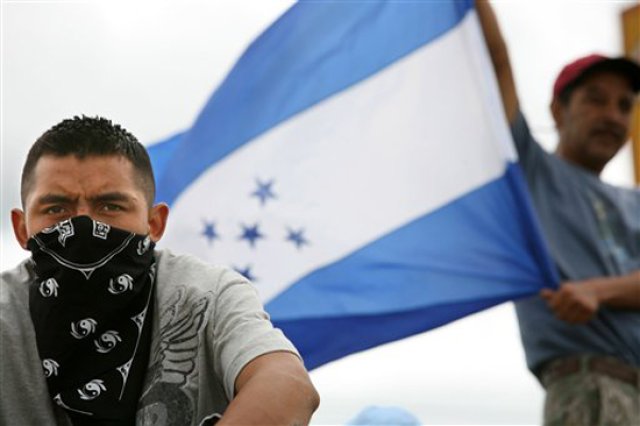
On June 28 last year, democratically-elected Honduran President Manuel Zelaya was overthrown in a US-backed military coup.
Zelaya had upset US and Honduran corporate interests with policies such as blocking privatisation, increasing the minimum wage and joining the anti-imperialist Latin American bloc led by Venezuela and Cuba, the Bolivarian Alliance for the Americas (ALBA).
But it was Zelaya’s decision to grant a demand of the social movements and begin a democratic process towards rewriting Honduras’s pro-elite constitution that led directly to the coup.
The dictatorship set up by the coup has been met with sustained mass resistance from the poor majority. The National Popular Resistance Front (FNRP) has united a range of organisations, and helped organise the oppressed. One of the key demands of the FNRP is the holding of a constituent assembly to create a new constitution. The article below is reprinted from, the FNRP’s official website. It has been translated by Warwick Fry.
* * *
The FNRP, after a long and honest democratic discussion in Tocoa Colon with 56 national delegates, elected a provisional coordinating body, which will act until December.
The president in exile, Zelaya, was named as president of the executive committee. The agreements included the decision “not to participate further in elections, ‘Honduras style’, that strengthen the two party system and contribute to the enrichment of the same elite that was the agency of the coup”.
The Teachers’ Union Professional Society (COPRUM) said the event was “full of the natural contradictions that would be normal for human beings who have lived most of their lives in silence and voiceless”.
“What is the problem, if we shout and squabble? It is preferable to have the disorder of a democracy where everyone speaks, and everyone complains, than an oligarchic democracy where people are punished for dissent.”
It stated: “If there is no debate in the Resistance, it dies, and with it, dies the great project of national transformation.”
The issue of the constituent assembly is a central theme for the resistance movement and a procedure will be developed for it to be convened.
The resistance is made up of social and political organisations; and hundreds of thousands of individual members from neighborhoods and communities.